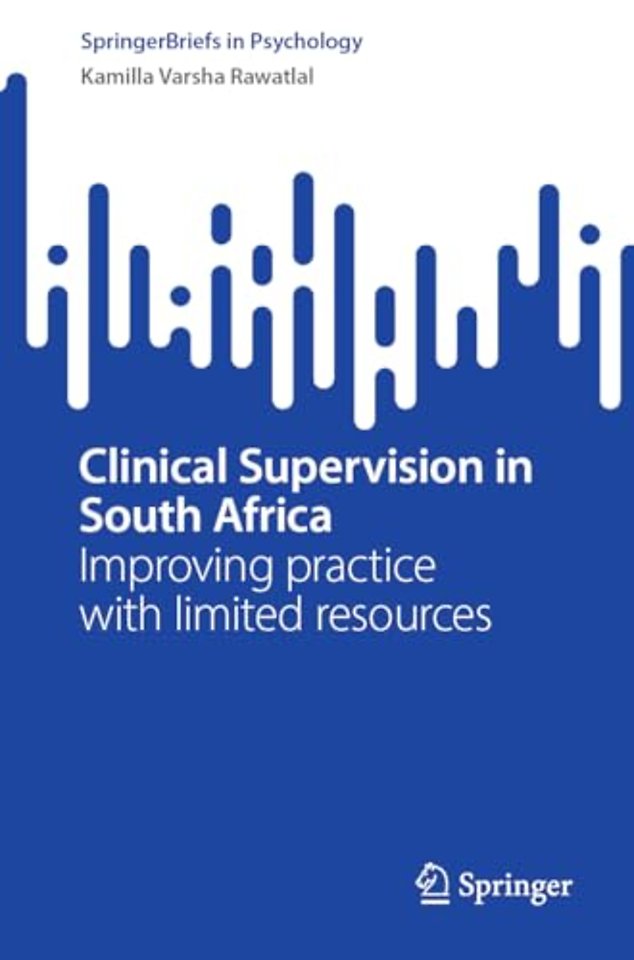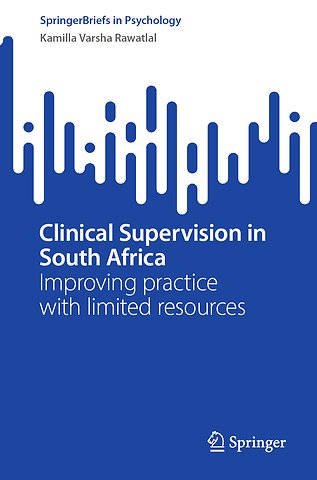Clinical Supervision in South Africa
Improving practice with limited resources
Samenvatting
In this publication, an ecological, relational framework to support practitioners i. e. Masters’ level Psychologists/Social Workers/Health Professionals, Interns navigate 21st century challenges and opportunities in the provision of mental health care services at various institutions in developing countries such as South Africa is discussed. With an increased uptake of mental health care services in recent times and the advent of teletherapy to make these services more accessible, health care professionals have had to also reconcile working within institutional structures that place challenges and pressures. Psychologists and Health Professionals employed in various governmental institutions such as health and higher education have also been subject to multiple competing demands that increase the risk of compassion fatigue and burnout. Reference is made to research that has demonstrated that burnout arises from multiple institutional, professional and personal factors, including healthprofessional’s belief’s and coping.
Specificaties
Inhoudsopgave
<p> This will also include a brief overview of some of the traditional models used and the need for ecological models</p>
<p>Chapter Two: An ecological systems theory framework: The Health professional in the centre of the Circles</p>
<p> This chapter will explain the ecological framework and locate the Health professional at the centre. A sense of well-being of the Health professional as</p>
the core to effective health professional practice in different institutions is advocated.<p></p>
<p>Chapter Three: Level One (The core) Discusses Supervisees internal frame of reference (motivation, beliefs, values etc.)</p>
<p>Chapter Four: Level Two- Supervisees external frame of reference (expectations from supervision, positive psychology, social constructivist, CBT approaches, Psycho-dynamic approaches). Strengths based approaches and post modern approaches. Include what to bring to supervision and what to expect from supervisors and supervisees</p>
<p> </p>
<p>Chapter Five: Level 3: Navigating the external (institutional)</p>
<p> Asset management, project management, influence on policy, psycho education, conducting situational analysis. Managing institutional pressures. Health Professional Collaboration and mental health promotion skills for the work place</p>
<p> </p>
<p>Chapter Six: Case Management in resource constrained contexts</p>
<p> </p>
<p>Chapter Seven: Post-modern approaches to practicing in public health contexts</p>
<p>- Photovoice and other social constructivist approaches</p>
<p>- Facilitating and Supervising Teletherapy sessions</p>
<p> </p>
<p> Chapter Eight: Health care professional Self Care and Self-Management</p>
<p> </p>
<p> Conclusion: Integration of chapters, implications and application for practice and training</p>
Net verschenen
Rubrieken
- aanbestedingsrecht
- aansprakelijkheids- en verzekeringsrecht
- accountancy
- algemeen juridisch
- arbeidsrecht
- bank- en effectenrecht
- bestuursrecht
- bouwrecht
- burgerlijk recht en procesrecht
- europees-internationaal recht
- fiscaal recht
- gezondheidsrecht
- insolventierecht
- intellectuele eigendom en ict-recht
- management
- mens en maatschappij
- milieu- en omgevingsrecht
- notarieel recht
- ondernemingsrecht
- pensioenrecht
- personen- en familierecht
- sociale zekerheidsrecht
- staatsrecht
- strafrecht en criminologie
- vastgoed- en huurrecht
- vreemdelingenrecht

